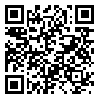Sun, Dec 22, 2024
[Archive]
Volume 9, Issue 4 (12-2017)
itrc 2017, 9(4): 37-49 |
Back to browse issues page
Download citation:
BibTeX | RIS | EndNote | Medlars | ProCite | Reference Manager | RefWorks
Send citation to:



BibTeX | RIS | EndNote | Medlars | ProCite | Reference Manager | RefWorks
Send citation to:
Keyvanpour M, Kholghi M, Haghani S. Hybrid of Active Learning and Dynamic Self-Training for Data Stream Classification . itrc 2017; 9 (4) :37-49
URL: http://journal.itrc.ac.ir/article-1-26-en.html
URL: http://journal.itrc.ac.ir/article-1-26-en.html
1- , keyvanpour@alzahra.ac.ir
Abstract: (3324 Views)
Most of the data stream classification methods need plenty of labeled samples to achieve a reasonable result. However, in a real data stream environment, it is crucial and expensive to obtain labeled samples, unlike the unlabeled ones. Although Active learning is one way to tackle this challenge, it ignores the effect of unlabeled instances utilization that can help with strength supervised learning. This paper proposes a hybrid framework named “DSeSAL”, which combines active learning and dynamic self-training to achieve both strengths. Also, this framework introduces variance based self-training that uses minimal variance as a confidence measure. Since an early mistake by the base classifier in self-training can reinforce itself by generating incorrectly labeled data, especially in multi-class condition. A dynamic approach to avoid classifier accuracy deterioration, is considered. The other capability of the proposed framework is controlling the accuracy reduction by specifying a tolerance measure. To overcome data stream challenges, i.e., infinite length and evolving nature, we use the chunking method along with a classifier ensemble. A classifier is trained on each chunk and with previous classifiers form an ensemble of M such classifiers. Experimental results on synthetic and real-world data indicate the performance of the proposed framework in comparison with other approaches.
Type of Study: Research |
Subject:
Information Technology
Send email to the article author
| Rights and permissions | |
 | This work is licensed under a Creative Commons Attribution-NonCommercial 4.0 International License. |




